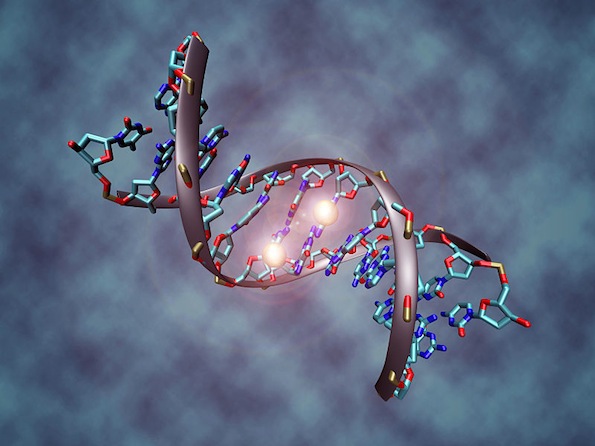genome, genotype, phenotype, epigenetic, genetic,e...
What is epigenetics?

Generally speaking (and ignoring still-experimental technologies such as gene therapy), the genes an animal is born with are those it is stuck with. Collectively, those genes encode every protein the animal produces. One common analogy is that the genome is a bit like a recipe book, with the genes (and the proteins they encode) mixed together to create a complete organism. Skilled chefs, though, are able to vary the taste of a dish by choosing precisely what quantities of individual ingredients go into the pot, and that, more or less, is what epigenetic mechanisms do. By adding specific chemicals to parts of the DNA, or by controlling how the DNA is packaged, an organism can adjust the degree to which particular genes are turned into proteins (the extent to which they are "expressed", in the jargon).
That ability to tinker with the genome is one way in which different types of cell within an organism can specialise, allowing liver, nerve and bone cells to be created from the same genetic blueprint. It also allows organisms to react to changes in circumstance—as happens when fat cells alter the way in which they express their genomes in response to exercise. But what has really made biologists sit up and take note is evidence that epigenetic states can be passed on to an animal's offspring. This provides a mechanism over and above the passing on of genes—hence the prefix "epi" (Greek for over or above)—by which traits can be transferred from one generation to the next. Stressed rats, for instance, produce anxious pups, and those pups remain anxious even when handed off to unstressed mothers in soothing environments. A landmark study in Sweden discovered that a grandparent's experience of either famine or plenty had implications for the lifespan of the next generation—and the one after that, too. The grandparents' genes, in other words, had been "reprogrammed", either by hardship or luxury, and the reprogramming was transmitted along with the genes down two further generations.
The discovery that acquired characteristics can be inherited too is big news. For most of the 20th century, biology held that genes were the sole mechanism of inheritance, and that changes in genes occured only through the random walk of mutation and the relentless sieve of natural selection. Readers who remember their scientific history may by this point be thinking of Jean-Baptiste Lamarck, a 19th-century biologist who held that traits acquired by animals during their lives could be passed down to their descendants. Epigenetic mechanisms do not, however, permanently alter the DNA sequence itself, and even those epigenetic changes which are inherited seem subsequently reversible. But the idea that acquired characteristics can be inherited at all is still an important and novel one, the implications of which are still being teased out by researchers.
(Picture credit: Christoph Bock/Max Planck Institute for Informatics, via Wikimedia)
沒有留言:
張貼留言